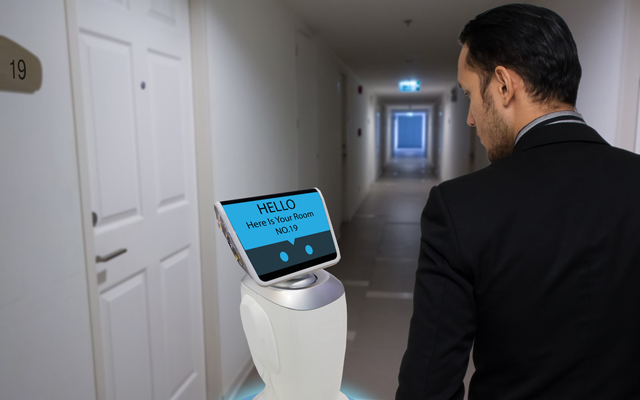The Singapore Tourism Board (STB) and The Hotel Innovation Committee (HIC) yesterday unveiled a slew of projects that encourage technology adoption and innovation by hotels.
Supported by STB, HIC launched the Smart Hotel Technology Guide outlining the vision of a smart hotel and relevant technologies already available to help realise this vision.

The guide puts forth a vision of a smart hotel as one that allows guests to check-in independently and asses their room through a smart device, with a robot delivering their luggage to the room.
A video analytics system supporting facial recognition could zero in on a guest leaving the hotel with a suitcase and send an electronic bill to the guest to complete the check-out process.
Food and drinks consumed from the minibar could be automatically computed in the bill, eliminating the need for a manual stocktake.
The guide also features case studies of hotels and organisations that have successfully implemented such innovative solutions.
According to a joint statement released by STB and the Singapore Hotel Association (SHA), which leads HIC, the vision “is no longer a pipe dream… as many of the technology solutions required are already available in the market today”.
Technologies identified in the guide include real-time marketing distribution and review tracking solutions, artificial intelligence, machine learning and predictive analysis, biometrics recognition and video analytics, the Internet of Things, among others.
“It is critical for the hotel industry to look beyond the present and learn to innovate and be future-ready,” said Ong Huey Hong, STB’s director of hotels and sector manpower.
While many hotels are already working towards learning to innovate and be future-ready, she said they may have limited capacity to explore and evaluate the many solutions available.
“Hence, the guide and the directory are very good starting points for solution providers to showcase their offerings to the industry and for hotels to search for smart solutions that best meet their needs,” she added.
To facilitate link-ups between hotels and technology vendors, HIC also launched the Hotel Technology Directory. To date, more than 70 local and foreign vendors with solutions ranging from facial recognition to Internet of Things can be found on the directory, providing hotels with a one-stop portal to source for technological solutions and start their transformation journey.
With the first Smart Hotel Technology Guide focussed on front-of-house operations, plans are underway to create a version targeting the back-of-house in 2019.
Other collaborations between STB and HIC planned include a new Hotel Innovation Challenge, which will seek innovations in emerging solutions covering areas including big data, blockchain technology and sustainability, on top of housekeeping and F&B jobs.
As well, Workforce Singapore, in partnership with STB and SHA and supported by the Food, Drinks and Allied Workers Union, has embarked on a Job Redesign Project to develop a Job Redesign Toolkit for the hotel industry. Slated for publication in the first half of next year, the JR Toolkit will complement the hotels’ transformation journey by helping them identify opportunities for job redesign.
Alongside these efforts, the new Advisory Committee on Human Capital Progressive Practices for Hotels, led by SHA and supported by STB, WSG, FDAWU and NTUC’s Hospitality and Consumer Business Cluster, will also work with the hotel industry to develop more progressive human resources practices to equip the industry with a future-ready workforce.




















